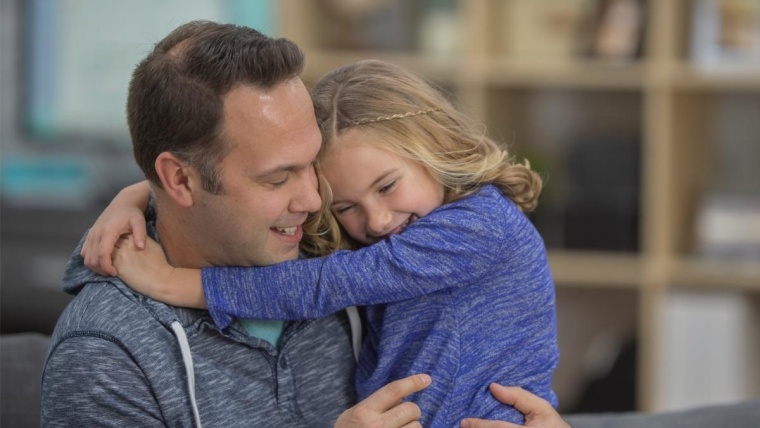Circumstances in which a parent is deemed unfit for custody are very unfortunate, as there are many benefits for a child to be able to spend time with each parent. Ideally, it is best for all parties involved when divorced parents are able to devise a co-parenting plan the entire family can benefit from. In these scenarios, the children and parents tend to be happier and more well-adjusted. If you are facing a child custody case, it is important to know what may prevent you or the other parent from sharing custody of your child.
What Is an Unfit Parent?
If you fear that you may have difficulty in your custody case because you aren’t a perfect parent, that isn’t necessarily a reason to worry. Nobody is perfect, and the courts know that some people have more of a knack for parenting than others do. Just because you don’t have a trophy for “parent of the year” doesn’t mean that a judge won’t give you custody of your child.
What the judge will look at, however, is the best interests of the child. The judge will weigh parental rights against the child’s interests when making their decision and make a ruling based on that. If you are truly doing your best, you are not likely to be penalized by having your custody rights revoked.
A judge will find a parent to be unfit, though, if their conduct could cause mental or emotional harm to the child or place them in danger. The basis for being deemed an unfit parent lies in the concept of being incapable of ensuring your child’s welfare and caring for them properly.
What Does a Judge Look at When Determining Whether a Parent Is Unfit?
A judge will consider several factors that are relevant to a parent’s ability to properly care for their child. They may also order a child custody evaluation if they deem it necessary to arrive at the best decision in a particular case. Some of the factors they consider include the following.
- The nature of contact and amount of contact the child has with each parent
- The parental history of drug, alcohol, and substance abuse
- A proof that there is a history of violence or abuse against the child, the child’s other parent, any other child, or any other romantic partners of the parent
- The welfare, health, and safety of the child
In some extreme scenarios, a judge may also appoint a minor’s counsel for the child. This legal professional will ensure that the children are able to make their voice heard when there is a great deal of conflict between the parents.
What Is the Job of a Child Custody Evaluator?
If the judge decides to get an expert opinion from a custody evaluator before making a custody decision, this individual will interview professionals such as the child’s doctors and teachers. They will also conduct interviews with the child and the parents, observe interactions between the parent and child, and review health records and other documents.
In many cases, the evaluation will also subject the parents to psychological testing, as this is a crucial factor in determining how fit the parents are to have custody. After these processes are complete, the evaluator prepares a report for the judge. If the judge has chosen to have a child custody evaluation conducted, they want the professional who prepares the report to look at the following factors.
- Accusations of parental alienation by either of the parents
- The parent’s ability to provide adequate clothing and food for the child, as well as a clean, safe home
- Whether the parent provides dental and medical care for the child
- Any history of abandonment or neglect
- A parent’s history of mental instability or any untreated mental illness
- How the child feels toward each parent
- How involved the parent is in the child’s everyday life
- Whether the parent can understand and provide for the needs of the child
- The parent’s ability to handle conflict between the child and themself, as well as between the child and others
- Age-appropriate limits the parent has set for the child regarding bedtime, television, movies, and activities
The courts and any evaluators they rely on for expert opinions should never show a preference or presumption for either parent. The goal should always be to grant joint custody to both parents whenever possible, as that is typically best for the child. The judge and the child custody evaluator should conduct an objective review of the information they obtain and decide upon custody issues based on the parent’s fitness to provide a caring, safe home for the child.
If either one of the parents disagrees with the report or feels that the evaluator has not been objective, they can present their objections in the courtroom, along with any evidence to the contrary they may have. It is important to note, however, that this report is confidential, and the decision to disclose its contents, you could face fines and possibly be ordered to pay the other parent’s attorney fees.
What Types of Evidence Can Be Used to Prove a Parent Is Unfit?
Deeming a parent unfit is not something most judges take lightly, and it can be difficult to prove, especially if it is simply based on the accusations of the other parent. The party who alleges that the parent is unfit must have proof. If the parent is, in fact, unfit, some evidence may be obtained by means of social media, videos, photos, and other digital resources.
There are various other types of evidence that can be used to make a case against an unfit parent, including the following.
- Criminal records
- Documented details of home inspections and visits
- Videos and photographs of the parent’s home
- Police reports describing domestic violence
- Medical and school records
- Testimony from individuals who have witnessed unfit parenting behavior, such as coaches, teachers, therapists, and counselors
In circumstances where the courts order a child custody evaluation, the report they provide can be of great importance in the case. The professionals who perform these evaluations work as independent investigators, so they are impartial to the case, and any evidence they collect is highly regarded as accurate by the courts. This evidence often carries a great deal of weight with a judge on an unfit parent case, as it is difficult for the accused individual to dispute.
Every situation is unique, and the evidence necessary to prove an unfit parenting case must be tied to the specific allegations against that individual. If the evidence doesn’t back up the claims, a judge is likely to find the allegations to be unfounded. If, on the other hand, the judge finds the parent to be unfit, the results could range from restricted or supervised visitation orders to termination of parental rights, depending on the severity of the case.
Trust the Skilled Attorneys of Khalaf Law Group
Whether you are a parent who is accused of being unfit, or the party making allegations against another individual, such cases must be taken very seriously. It is never a good idea to make these serious accusations against a parent out of spite, as it can be harmful to the child, and a judge will likely see through any lies or exaggerations. At the same time, however, any parent who is truly unfit must be dealt with according to the law. The skilled attorneys at Khalaf Law Group have the experience and knowledge to handle these cases with honesty and integrity. Visit our website today and reach out to us to see what we can do to help you through this difficult time.



